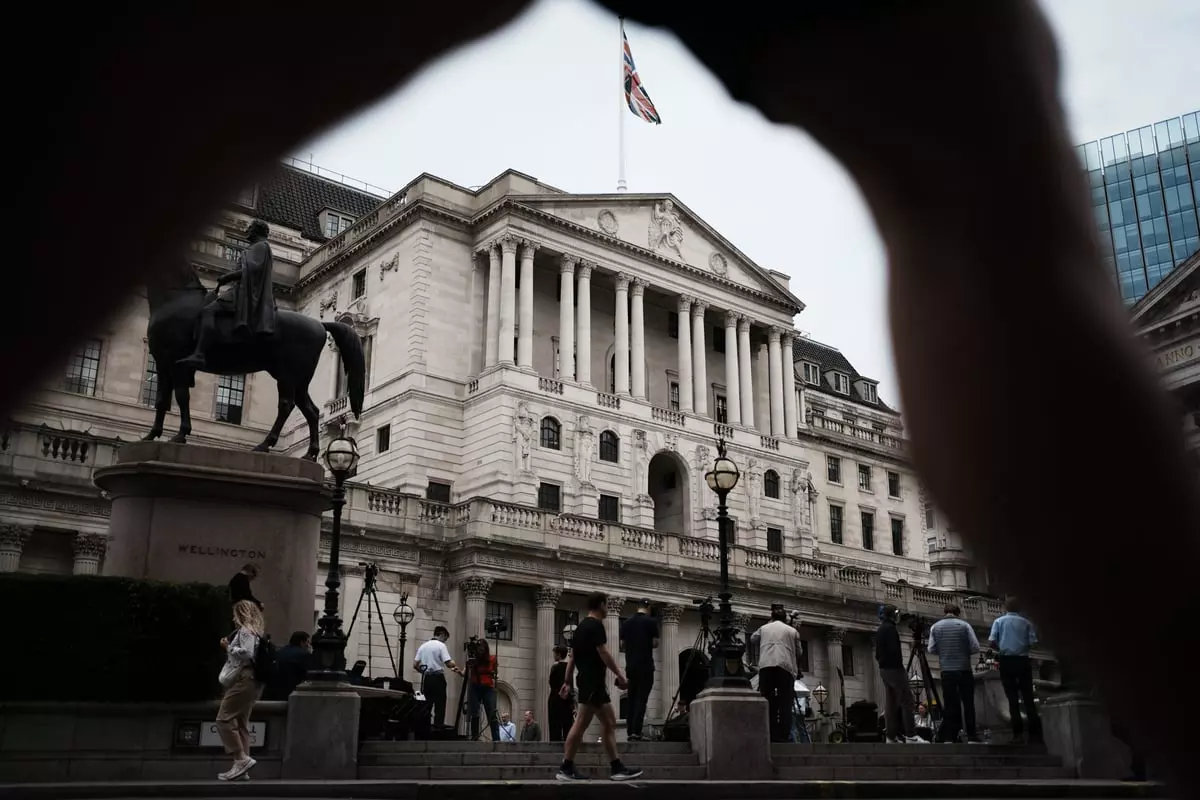AI Boom Faces Reckoning: Bank of England Warns of Risky Market Correction Amid Soaring Tech Valuations
AI Boom Faces Reckoning: Bank of England Warns of Risky Market Correction Amid Soaring Tech Valuations
By
Junia Wells
Last updated:
October 9, 2025
First Published:
October 9, 2025

Photo: inkl
The Bank of England has issued a stark warning that global markets could face a “sharp correction” if enthusiasm around artificial intelligence (AI) falters, highlighting that current stock valuations — particularly in the tech sector — appear dangerously overstretched.
In its latest financial stability report, the Bank noted that AI-driven market exuberance has pushed valuations of top U.S. and U.K. technology firms to levels reminiscent of past speculative bubbles. With geopolitical tensions, fragmented trade policies, and strained sovereign debt markets adding to global uncertainty, the central bank warned that such vulnerabilities could quickly unravel market confidence.
“A crystallisation of such global risks could have a material impact on the U.K. as an open economy and global financial centre,” the report stated.
AI Frenzy and Market Concentration
Equity markets are hovering near record highs, powered largely by AI optimism and the impressive second-quarter earnings of U.S. tech giants. The Bank pointed out that the five largest companies in the S&P 500 now account for nearly 30% of the index’s total market value — the highest concentration in over half a century.
This growing dominance, particularly by AI-focused firms such as Nvidia, Microsoft, and Alphabet, has made markets more vulnerable. The Bank cautioned that if investor sentiment shifts or AI growth slows, the ensuing correction could be swift and severe, wiping out billions in market capitalization.
The report warned, “This, combined with increasing index concentration, leaves equity markets particularly exposed should expectations around AI’s impact become less optimistic.”
The Bubble Debate
The Bank of England joins a rising chorus of voices — including the Federal Reserve and major investment banks — questioning whether the AI boom is sustainable. Federal Reserve Chair Jerome Powell recently noted that some assets appear “fairly highly valued,” echoing the Bank’s caution about speculative excesses.
While Goldman Sachs maintains that a full-fledged bubble has yet to form, it acknowledged that valuations are becoming harder to justify and urged investors to diversify their portfolios. Other analysts point out that AI’s growth potential remains immense, but the sector could face temporary shocks if technological progress slows or costs rise unexpectedly.
The Fragile Foundation Beneath AI
The Bank’s report also underlined several structural vulnerabilities that could undermine AI’s rapid rise.
Key risks include:
- Supply constraints on critical resources such as data, energy, and rare commodities.
- Delays in infrastructure development, particularly around power-hungry AI data centers.
- Increased competition leading to profit compression and unrealistic earnings forecasts.
The Bank warned that “disappointing AI adoption progress or material bottlenecks in supply chains could drive a significant re-evaluation of currently high expected future earnings.”
These warnings come as some firms tied to the AI supply chain — including hardware producers and chip manufacturers — face growing production costs and geopolitical barriers around semiconductor trade.
Wider Economic Pressures
Beyond the tech sector, the Bank highlighted growing financial instability across global markets. The private credit market has shown fresh signs of strain following the bankruptcy filings of First Brands and Tricolor Auto Finance, raising concerns about corporate debt quality.
Political uncertainty in France, Japan, and the U.S. — including potential interference by former President Donald Trump with the Federal Reserve’s independence — adds to the global sense of unease.
The Bank concluded that “changes to the risk landscape increase the possibility that markets have not fully priced in adverse outcomes,” warning that a sudden correction could have real economic consequences for households and businesses already battling high living costs and elevated borrowing rates.
The Bottom Line
While AI continues to drive optimism and technological progress, the Bank of England’s caution serves as a sobering reminder that markets built on hype rather than fundamentals rarely sustain their momentum. As valuations soar and concentration grows, investors may soon be forced to reckon with whether the AI revolution is fueling innovation — or simply inflating the next great financial bubble.
Popular articles
Subscribe to unlock premium content
The Rise of Silent Walking Tours in Historic Cities

The Rise of Ultra-Niche Cooking Classes Focused on Historical or Regional Recipes

The Rise of One-Person Dining Experiences for Ultra-Introverts in Major Cities

The Rise of Silent Walking Tours in Historic Cities

The Rise of Ultra-Niche Cooking Classes Focused on Historical or Regional Recipes

The Rise of Silent Walking Tours in Historic Cities









